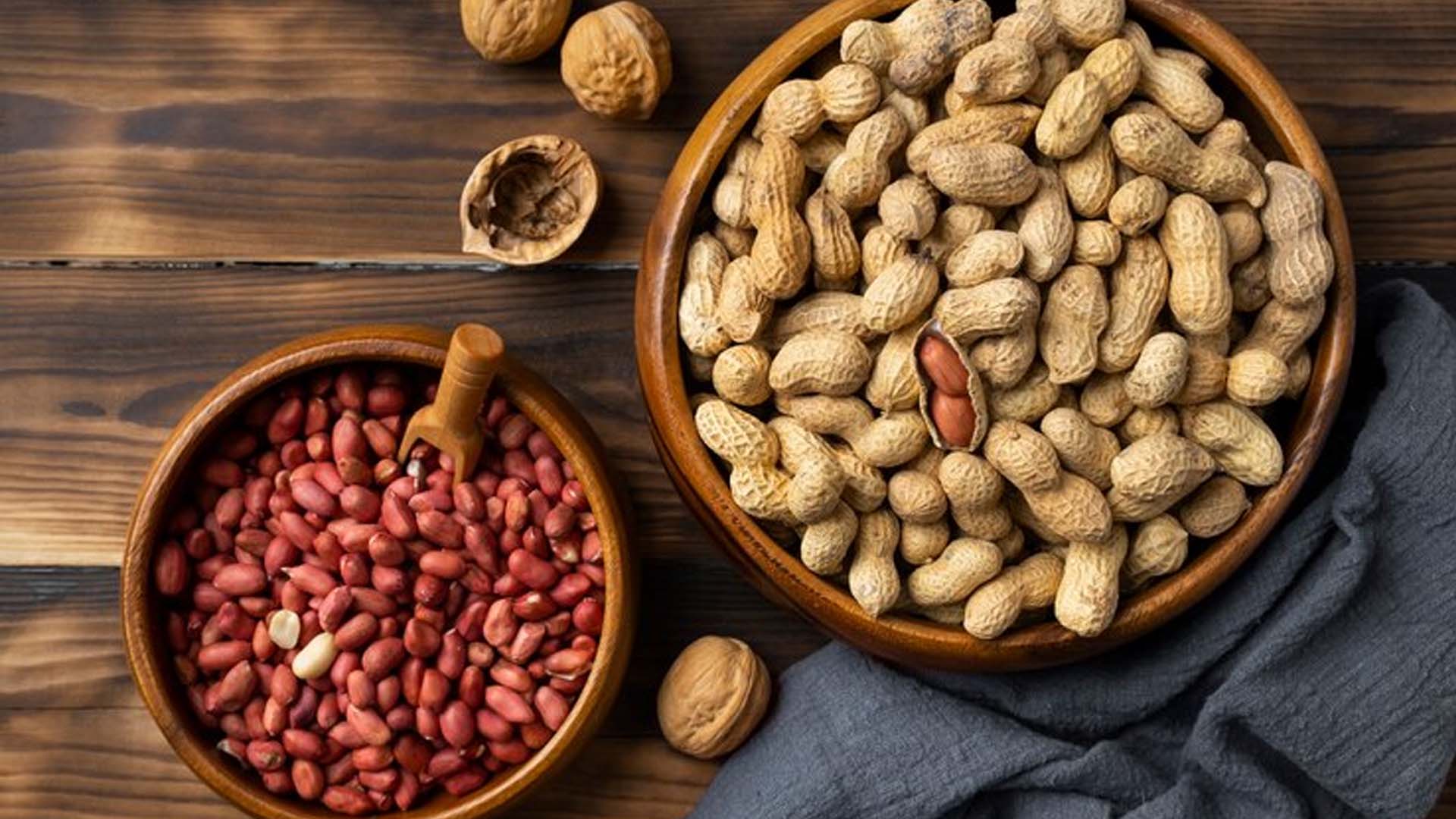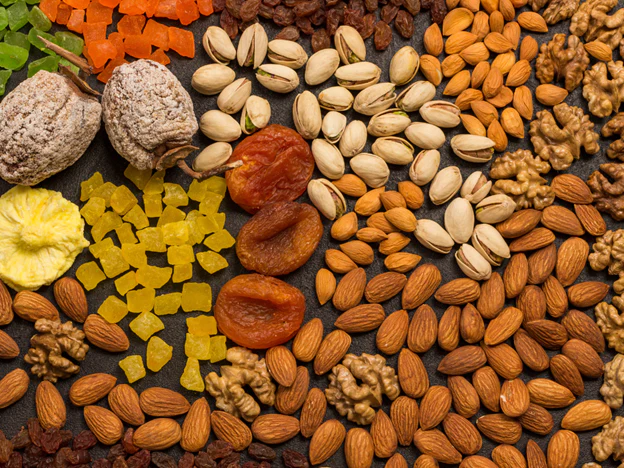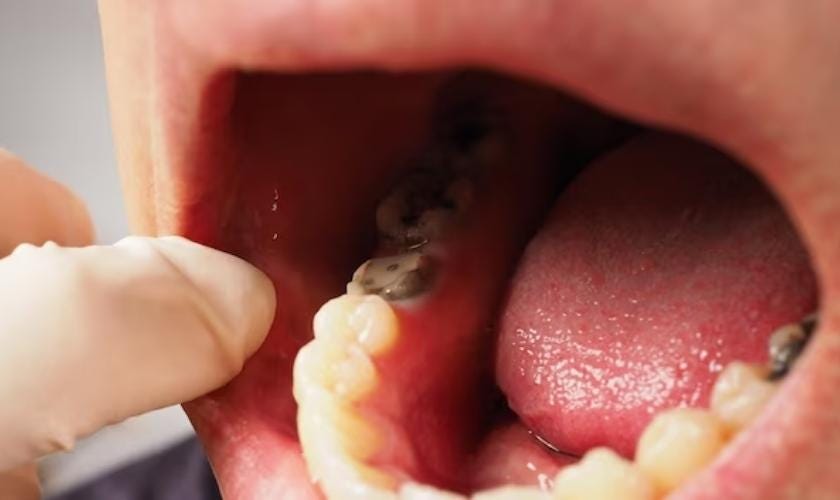Peanuts themselves are not inherently bad for coughs. However, if you have a persistent cough or respiratory issues, it’s important to consider various factors related to your diet and lifestyle.
Peanuts are a common allergen, and some people may be allergic to them. Allergic reactions can include symptoms like coughing, wheezing, shortness of breath, and throat irritation. If you suspect a peanut allergy, it’s crucial to avoid peanuts and peanut-containing products to prevent allergic reactions.
In some cases, certain foods, including peanuts, can trigger or worsen coughing and other respiratory symptoms in individuals with conditions like acid reflux (gastroesophageal reflux disease or GERD). In such cases, avoiding foods that can exacerbate acid reflux may help alleviate coughing.
On the other hand, peanuts are a good source of protein and healthy fats, and they can be part of a balanced diet for most people. They also contain antioxidants and nutrients that can support overall health.
How do peanuts contribute to allergies?
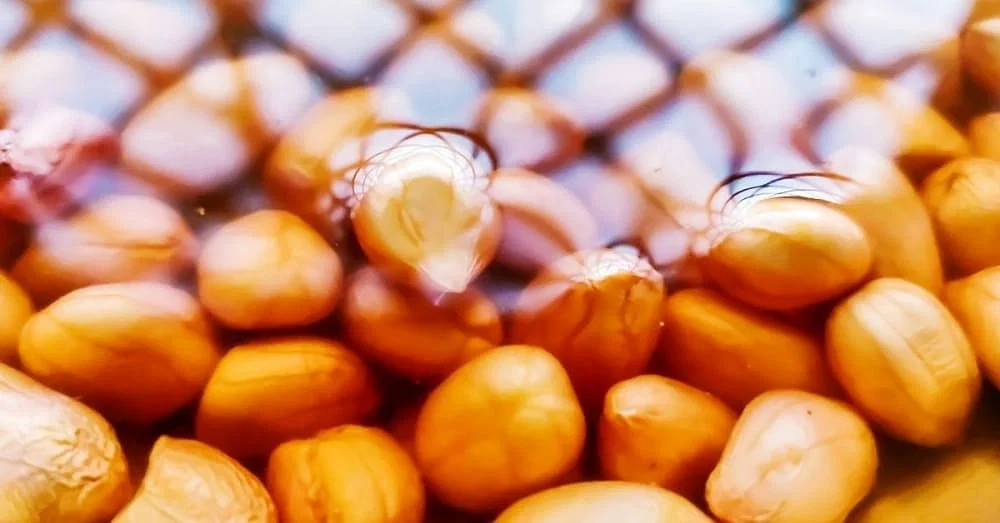
Peanuts are among the most common food allergens worldwide. An allergy to peanuts is characterized by an abnormal immune response to proteins found in peanuts. These proteins can trigger an allergic reaction when they come into contact with the body, leading to various symptoms, including coughing.
Furthermore, peanut allergies are typically lifelong and can develop in childhood or adulthood. The immune system recognizes peanut proteins as harmful invaders, leading to the release of chemicals like histamine.
This immune response can cause a wide range of symptoms, from mild to severe, such as itching, hives, swelling, digestive issues, and respiratory symptoms.
Discuss how peanut allergies can lead to coughing and other respiratory symptoms
Peanut allergies can manifest with respiratory symptoms, which may include coughing, wheezing, shortness of breath, and even anaphylaxis in severe cases. Here’s how these symptoms can occur:
Bronchoconstriction: Peanut allergens can trigger the narrowing of airways, a process known as bronchoconstriction. This narrowing can make it difficult to breathe and may result in coughing and wheezing.
Histamine Release: When the immune system detects peanut proteins as threats, it releases histamine and other chemicals. Histamine can cause inflammation and constriction of the airways, leading to respiratory symptoms.
Mucus Production: Allergic reactions can stimulate the production of mucus in the respiratory tract. Excess mucus can lead to coughing and a feeling of throat congestion.
It’s important to note that the severity of respiratory symptoms can vary widely among individuals with peanut allergies. Some may experience only mild coughing, while others could face more severe breathing difficulties.
The importance of avoiding peanuts if one has a peanut allergy
The key to managing peanut allergies and preventing coughing and other severe symptoms is strict avoidance of peanuts and peanut-containing products. Here are some important considerations:
Read Labels: Individuals with peanut allergies must carefully read food labels to identify potential sources of peanuts or cross-contamination. Many packaged foods are required to label common allergens like peanuts.
Communicate Allergies: It’s crucial to inform restaurants, friends, family, and caregivers about the peanut allergy to avoid accidental exposure.
Carry Epinephrine: In severe cases, individuals with peanut allergies may carry epinephrine (EpiPen) to quickly counteract anaphylactic reactions, including severe coughing and breathing difficulties.
Emergency Action Plan: Create and follow an emergency action plan with guidance from a healthcare professional to know how to respond in case of an allergic reaction.
What exacerbates acid reflux, including peanuts?
Acid reflux, also known as gastroesophageal reflux disease (GERD), occurs when stomach acid flows back into the esophagus, leading to symptoms like heartburn and regurgitation. Certain foods can trigger or exacerbate acid reflux, and peanuts are among those that can potentially contribute to the problem.
Here’s how peanuts, and similar foods, can exacerbate acid reflux
High-Fat Content: Peanuts are relatively high in fat, and fatty foods tend to relax the lower esophageal sphincter (LES), a muscular ring that separates the esophagus from the stomach. When the LES relaxes, it allows stomach acid to flow back into the esophagus, leading to acid reflux.
Acidic Nature: Some peanuts may have a slightly acidic nature, which can further irritate the esophagus when stomach acid is already present. This can lead to more pronounced symptoms.
Delayed Emptying: Fatty foods like peanuts can delay the emptying of the stomach, causing it to remain full for longer periods. This prolonged fullness can increase the pressure on the LES, making acid reflux more likely.
Discuss how acid reflux can lead to coughing and throat irritation
Acid reflux can cause a variety of symptoms, including coughing and throat irritation. Here’s how this occurs:
Aspiration: In some cases, stomach acid that flows back into the esophagus can reach the throat and even the airways. When this acid comes into contact with the delicate tissues of the throat and air passages, it can irritate them, leading to coughing and throat irritation.
Microaspiration: Tiny amounts of stomach contents, including acid, can be inhaled into the lungs, a process known as microaspiration. This can lead to irritation and inflammation in the airways, potentially causing coughing and respiratory discomfort.
Laryngopharyngeal Reflux (LPR): Acid reflux that primarily affects the throat and voice box is called laryngopharyngeal reflux. LPR can result in symptoms such as chronic cough, hoarseness, and throat clearing.
The importance of managing diet to alleviate acid reflux-related coughing
Managing diet plays a crucial role in alleviating acid reflux-related coughing and throat irritation. Here are some dietary and lifestyle recommendations:
- Avoid Trigger Foods: Individuals with acid reflux should identify and avoid foods that trigger their symptoms, which may include peanuts and other high-fat, spicy, acidic, or citrusy foods.
- Smaller, More Frequent Meals: Eating smaller, more frequent meals can help prevent overfilling the stomach and reduce the risk of acid reflux.
- Maintain a Healthy Weight: Excess body weight can increase abdominal pressure, which can contribute to acid reflux. Maintaining a healthy weight through diet and exercise can help alleviate symptoms.
- Eat Early and Avoid Lying Down: Eating meals at least two to three hours before lying down or going to bed can help prevent nighttime acid reflux.
- Elevate the Head of the Bed: Sleeping with the upper body elevated can reduce the likelihood of stomach acid flowing into the esophagus during the night.
How do peanuts benefit a balanced diet?
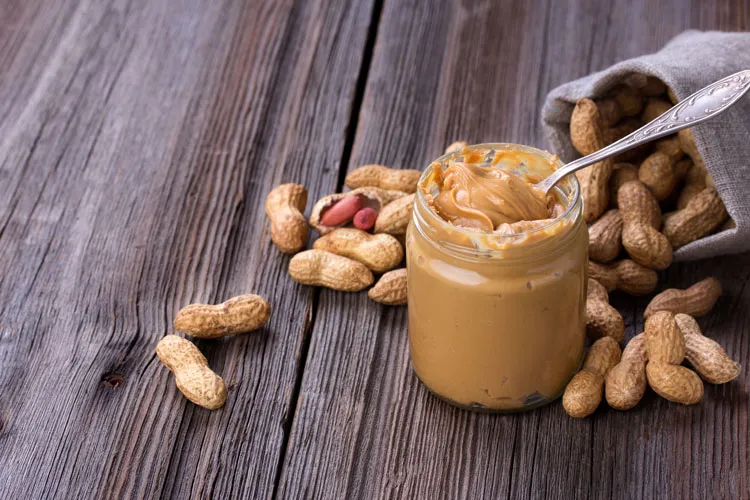
Peanuts are nutrient-dense and offer a variety of essential nutrients. Here’s an overview of the nutritional content of peanuts per 1-ounce (28-gram) serving:
| Nutrient | Amount per 1-ounce (28-gram) Serving |
| Calories | Approximately 160 calories |
| Protein | About 7 grams |
| Healthy Fats | Around 14 grams, primarily monounsaturated and polyunsaturated fats |
| Carbohydrates | Approximately 4 grams, with dietary fiber accounting for a portion |
| Dietary Fiber | About 2 grams |
| Vitamins | Peanuts are a good source of several B vitamins, including niacin (vitamin B3), folate (vitamin B9), and vitamin B6. |
| Minerals | They contain important minerals such as magnesium, phosphorus, potassium, and zinc. |
| Antioxidants | Peanuts are rich in antioxidants, including resveratrol and other polyphenols. |
The positive aspects of including peanuts in a balanced diet
Including peanuts in a balanced diet can offer several health benefits:
Heart Health: The healthy fats in peanuts, especially monounsaturated and polyunsaturated fats, can support heart health by lowering bad cholesterol levels (LDL cholesterol) and reducing the risk of heart disease.
Weight Management: Despite being calorie-dense, the protein and fiber in peanuts can promote a feeling of fullness, potentially aiding in weight management by reducing overall calorie intake.
Nutrient Density: Peanuts are a good source of essential vitamins and minerals, contributing to overall nutrient intake. They are particularly rich in niacin (vitamin B3), which is important for energy metabolism.
Antioxidants: Peanuts contain antioxidants, such as resveratrol, which have been associated with reduced inflammation and a lower risk of chronic diseases, including certain types of cancer.
Diabetes Management: The fiber and healthy fats in peanuts can help stabilize blood sugar levels, making them a suitable snack option for individuals with diabetes when consumed in moderation.
FAQ’s
Can we eat nuts during coughs and colds?
Yes, you can eat nuts during a cough and cold, as they provide healthy fats and nutrients that can support your immune system. However, if you have a sore throat, choose softer options like almond butter or avoid very crunchy nuts.
What foods make coughs worse?
Foods that may exacerbate cough include spicy foods, citrus fruits, dairy products, and sugary items, as they can irritate the throat or stimulate mucus production in some individuals.
Do roasted peanuts cause coughing?
Roasted peanuts themselves typically don’t cause a cough. However, if you have a peanut allergy, consuming peanuts can trigger an allergic reaction, which may include coughing as one of the symptoms.
What foods to avoid with a cough?
It’s advisable to avoid spicy foods, citrus fruits, dairy, and sugary foods when you have a cough. Opt for soothing options like warm tea with honey, broth-based soups, and easily digestible foods.
Can we eat salted peanuts while coughing?
Salted peanuts can be eaten in moderation during a cough. However, excessive salt intake may dehydrate you, so it’s essential to balance it with plenty of fluids to stay hydrated.
Are peanuts good for a cold?
Peanuts are a source of protein and healthy fats, which can be beneficial during a cold. They provide energy and nutrients that support your immune system, but they should be consumed in moderation.
What foods help dry cough?
Foods that can help soothe a dry cough include honey, ginger tea, warm water, and herbal teas. These options can provide relief by coating the throat and reducing irritation.
Final Words
In conclusion, when it comes to peanuts and your health, it’s essential to consider your individual circumstances. If you have a peanut allergy, avoiding peanuts is crucial to prevent allergic reactions. For those with acid reflux or coughing issues, being mindful of your diet can help alleviate symptoms—steering clear of trigger foods like peanuts can make a positive difference.
On the flip side, peanuts offer many nutritional benefits, like heart-healthy fats and essential nutrients, which can be part of a balanced diet for most people. But remember, it’s always a good idea to consult with a healthcare professional for personalized guidance on managing your health and dietary choices.

